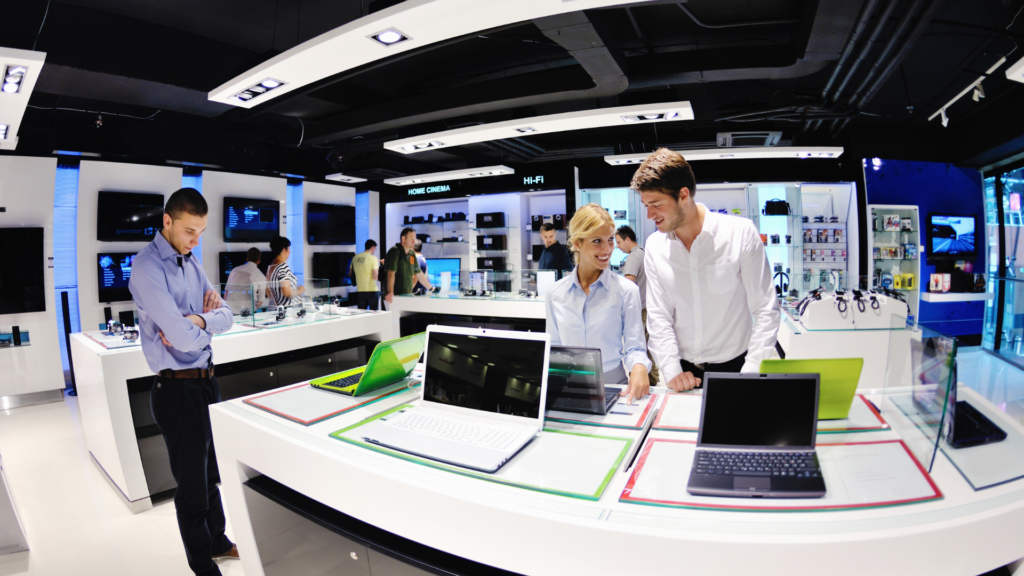In today’s fast-paced world, choosing the right consumer tech for your lifestyle is no longer a luxury—it’s essential. With an overwhelming array of smartphones, wearables, smart home devices, laptops, and audio gear on the market, selecting technology that complements your daily routines, work habits, and personal interests can feel daunting.
The right devices not only simplify everyday tasks but also enhance productivity, entertainment, and overall well-being. Whether you are a student, a busy professional, a fitness enthusiast, or someone who enjoys home automation, understanding your unique needs is the first step toward making informed tech decisions. By assessing your lifestyle and personal requirements, you can narrow down your options and invest in technology that truly adds value to your life.
Assess Your Lifestyle and Tech Needs
Before diving into specific gadgets, it is crucial to assess your lifestyle and identify your core tech needs. Ask yourself how much time you spend working remotely or traveling, whether you track fitness or health metrics, and if home automation or entertainment is a priority. Understanding these factors will help you identify which devices will make a meaningful impact. For example, frequent travelers may prioritize lightweight laptops and long-lasting batteries, while home-based professionals might value ergonomic accessories and seamless smart home integrations. This initial assessment ensures your tech choices align with your daily routines rather than following trends or flashy marketing.
Budgeting and Value Considerations
Budget plays a critical role in selecting consumer tech. While the newest flagship gadgets may seem appealing, it’s important to weigh their features against your actual needs. Prioritize essential over non-essential features; for instance, a high-end graphics card is unnecessary for someone who only uses their computer for browsing and office tasks. Long-term value should also be considered—sometimes investing slightly more in durable, high-quality devices reduces the need for frequent replacements. Additionally, make sure your new tech is compatible with existing devices to avoid extra costs and frustration. A thoughtful approach ensures your tech supports your lifestyle without overspending.
Choosing the Right Smartphone
Smartphones remain the cornerstone of modern consumer technology. When selecting one, consider performance, camera quality, battery life, and ecosystem compatibility. Professionals who rely on productivity apps or content creators who value photography need devices that handle their workload efficiently. Those who prefer seamless integration across multiple devices may benefit from sticking to a single ecosystem, such as Apple or Samsung, which allows devices to communicate smoothly.
Wearables for Health and Convenience
Wearables, including smartwatches and fitness trackers, are increasingly essential for health-conscious users. Look for features like heart rate monitoring, sleep tracking, notifications, and comfort. Battery life and durability are also important factors, ensuring the wearable remains functional and convenient throughout the day. Whether you are a casual fitness enthusiast or a serious athlete, selecting wearables that align with your lifestyle can improve health monitoring and daily efficiency.
Laptops and Tablets for Productivity
Laptops and tablets are another crucial category of consumer tech. The right choice depends on your work, study, or entertainment requirements. High-performance laptops are necessary for designers, video editors, or professionals running demanding software, while casual users can opt for mid-range devices. Portability, screen quality, and operating system preference (Windows, macOS, or hybrid options) are key considerations. Devices like Microsoft Surface tablets provide flexibility, functioning both as laptops and tablets for versatile use.
Audio Devices for Entertainment and Work
Audio devices such as headphones and earbuds enhance music, gaming, and remote work experiences. Features like noise cancellation, sound clarity, and connectivity (wired or Bluetooth) should guide your selection. High-quality audio devices can improve focus, relaxation, and overall enjoyment of entertainment, making them a key consideration in your consumer tech setup.
Smart Home Technology
Smart home devices offer convenience and efficiency, making them ideal for lifestyle-focused technology integration. Automation can simplify lighting, temperature control, and security, while voice assistants like Amazon Alexa, Google Home, or Apple HomeKit provide easy management. When selecting smart home tech, consider automation needs, integration within your existing ecosystem, and ease of use. Devices that work harmoniously together provide a seamless and energy-efficient home environment.
Sustainability and Longevity
Modern consumers increasingly prioritize sustainability. Durable, repairable, and energy-efficient devices not only save money in the long term but also reduce environmental impact, aligning with a conscious and responsible lifestyle. Choosing tech that lasts and minimizes waste ensures your investment continues to support your lifestyle without unnecessary replacements.
Research, Testing, and Security
Before committing to any purchase, research and testing are key. Reading reviews, watching hands-on demonstrations, and comparing similar products help reveal performance, usability, and potential drawbacks that specifications alone may not show. Whenever possible, testing devices in-store or borrowing from friends can provide firsthand experience. Security and privacy should never be overlooked; devices with regular software updates, encrypted data storage, and robust privacy controls protect personal information and digital assets.
Future-Proofing Your Technology
Planning for future needs ensures your tech continues to support evolving routines. Upgradable laptops, long software support cycles, and versatile devices provide long-term value and adaptability. Devices that can evolve with your lifestyle reduce the need for frequent upgrades and make technology a consistent aid rather than a burden.
Practical Tips for Selecting Consumer Tech
Selecting the right consumer tech requires a structured approach. Start by listing your priorities and evaluating which features are essential. Compare devices using trusted reviews and ensure compatibility with existing devices. Test performance when possible and review warranty and support policies to ensure long-term reliability. Balance price with features, focusing on value rather than brand prestige or hype. By following these steps, you can confidently choose consumer tech for your lifestyle that enhances productivity, entertainment, health, and convenience without unnecessary spending or frustration.
Frequently Asked Questions (FAQs)
1. What is consumer tech for lifestyle purposes?
A. Consumer tech for lifestyle refers to devices and gadgets that enhance everyday life, including productivity, health, entertainment, and home convenience. These devices should align with personal routines and habits.
2. How do I know which consumer tech suits me best?
A. Assess your lifestyle, prioritize needs, determine a budget, and focus on features that improve your daily life. Reading reviews and testing devices can also help.
3. Should I buy the latest model or an older one?
A. It depends on your requirements. Newer models often offer advanced features, but older devices may provide better value if they meet your needs. Focus on performance, features, and compatibility rather than novelty.
4. How important is ecosystem compatibility?
A. Ecosystem compatibility is crucial. Devices that integrate seamlessly with your existing technology improve efficiency, connectivity, and ease of use.
5. Are sustainable tech choices worth it?
A. Yes. Durable, repairable, and energy-efficient devices save money over time and reduce environmental impact, aligning with a conscious lifestyle.
6. What features should I prioritize first?
A. Prioritize features that directly improve your lifestyle. Travelers may need long battery life, professionals may need performance and ergonomics, and fitness enthusiasts may prioritize health tracking and wearables.



